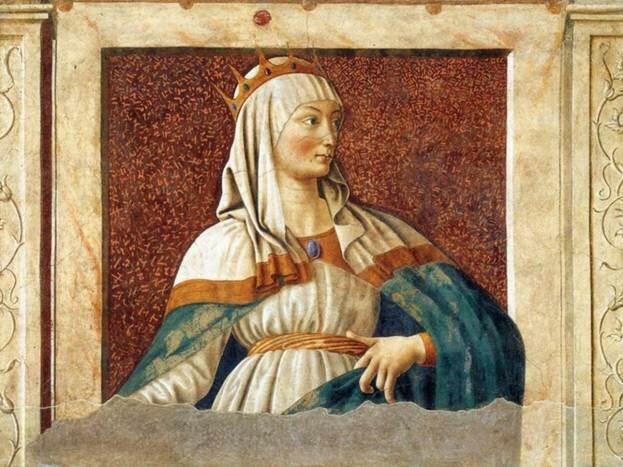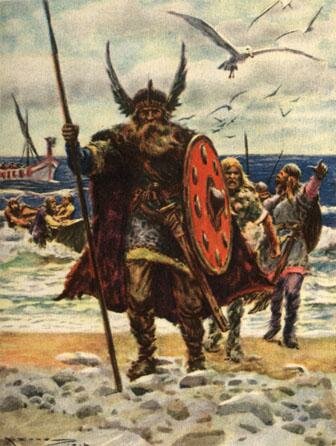Top 10 Touching Bible Stories
Suggested by SMSEven among those who would consider themselves to be atheist or agnostic, it would be difficult for anyone to call the Bible anything short of a fantastic piece of literature. Some of the stories contained in it are filled with beautiful imagery, intriguing foreshadowing, lyrical poetry, and a host of other stellar literary devices.
However, for those who believe in their hearts that the Bible is the Truth, it is the inerrant, divinely inspired Word of God, a true guidebook for life. Theological interpretations of the Bible vary wildly; some see it as allegorical, while others choose to accept it completely at face value as literal truth. Between the two points lies a virtually unending continuum of theological viewpoints, which is why there are so many diverse denominations of Christianity.
Far from being a single book, the Bible may be more easily understood when it is thought of as more of a library, a compilation of 66 separate books that tell the overarching story of God’s love for His creation. When considered from this viewpoint, it is easy to see why people get discouraged in trying to read the Bible. It is not a single linear story that you can read from the beginning to the end; rather, it is a collection of story lines that combine under a single unifying theme. Many of these books contain numerous sub-plots, each with its own unique purpose.
Given that understanding, it is easy to see why any list of Bible stories would depend upon the viewpoint of the person doing the compiling. With that in mind, here are my own personal Top 10 Touching Bible Stories.
10. The Book of Esther
As the book of Esther begins, King Xerxes of Persia summons his wife, Queen Vashti, to his presence. Apparently not in the mood to be admired, the queen refuses in a manner which really rubs the king the wrong way. Sensing that such disrespect would set a bad example for the rest of his kingdom, King Xerxes banishes Vashti from his presence forever. As a result, the search was on for a new queen.
As the young ladies of the kingdom were paraded before the king, a lovely young Jewish girl named Esther caught his eye. Esther had been orphaned and adopted by her cousin Mordecai, who raised her as his own according to Jewish custom. Since the Jews were a persecuted minority, Mordecai had forbidden her from revealing her background out of fear for their safety. Taken by Esther’s beauty, the king made her his queen.
The king’s right-hand man, Haman, had a habit of going through the kingdom and demanding that the people bow to him. Mordecai, however, refused; for a Jew, bowing to any man was considered to be disrespectful to God. Enraged, Haman manipulated the king into believing that the Jews were intent on subverting his authority and therefore needed to be eliminated.
At Mordecai’s urging, Esther eventually goes to the king and exposes Haman’s manipulation. Going before the king required great diplomacy and courage, because doing so could have dire consequences, and may have been punishable by death. Inspired by her faith, Esther proclaims, “I will go to the king, even though it is against the law. And if I perish, I perish (Esther 4:16, NIV). Esther’s courage saved the entire Jewish people.
9. Jacob wrestles with God

Jacob, the slightly younger twin brother of Esau, had tricked his father into giving him the blessing that was supposed to have been reserved for the firstborn child. Their father, Isaac, was ill, blind, and dying. He asked Esau, the hairy brother, to go kill and animal and bring him some food, at which time Esau would receive his father’s formal blessing before he died. Jacob, egged on by his mother Rebekah, beat Esau to the punch with the meal and covered himself with an animal skin so that Isaac wouldn’t know the difference. In doing so, he effectively stole the blessing which was due to his brother. Earlier in the book of Genesis, Jacob had managed to also talk his starving brother into giving up his birthright (which would have included a double portion of the inheritance as the firstborn) to his brother for a bowl of stew. Jacob had proven himself to be a man of questionable character, to say the least.
Jacob was the grandson of Abraham, whom God had promised to make the father of a great nation. Even though Jacob had been deceitful and manipulative, God had other plans for him. Fleeing for his life from his own family, Jacob had stopped for the night. Eventually, Jacob got up and found himself wrestling with a man he didn’t know. As it turned out, this was not a man, but God himself. Jacob refused to let go until he received the man’s (actually God’s) blessing. Jacob emerged from the encounter crippled, but with a deepened faith, as well as a new name. God changed Jacob’s name to Israel, and continued to honor His promise to Abraham. The take-away from this one is that God often uses remarkably imperfect people to fulfill His perfect will.
8. Rahab

Joshua became the leader of the nation of Israel after the death of Moses. Unfortunately, Israel was a nation of people without a home. Still searching for the land which God had promised to them, Joshua sent two spies to look over the land, especially in the area of Jericho. Searching for a place to hide, the spies hid in the home of a prostitute named Rahab. News of the arrival of the spies somehow made it to the king, who sent word to Rahab to turn the spies over to the king’s men. Rahab, however, fully believed that the spies were on a divine mission and hid them in her home while sending the king’s men to look for them elsewhere.
Although she was a prostitute, Rahab was also a woman of great faith who truly believed that the God of Israel is the true God. Because of her courageous protection of God’s people, God made her a part of the lineage that would later include King David and eventually Jesus. In spite of her shortcomings, God elevated her to a place of great honor. Once again, God uses whomever He decides to use to accomplish His will, usually in ways we cannot understand.
7. Hosea

Hosea was one of God’s prophets, a messenger carrying God’s message to His people. God had instructed Hosea to marry a woman named Gomer, whom God knew would be unfaithful to Hosea. And unfaithful she was, to a spectacular degree. She gives birth to three children, all of them presumably not fathered by her husband. Yet each time, God instructs Hosea to forgive her, and to love her unconditionally. While she receives punishment for her actions, Hosea continues to treat her lovingly.
Hosea’s treatment of his unfaithful wife was God’s illustration of His abiding love for His children, who had been (and continue to be) unfaithful to Him. In much the same way Hosea repeatedly and lovingly forgave his wife’s transgressions, God’s grace and mercy are repeatedly extended to us.
6. Abraham and Isaac

As mentioned earlier, God had promised to make Abraham the father of a great nation. The only problem was that Abraham and his wife, Sarah, had no children. God, faithful to His promise, gave them a son when Abraham was 100 years old and Sarah was about 80. They named this child Isaac, which means “he laughs”, because of the apparent humor in an old couple having a baby. Understandably, Isaac was the apple of his father’s eye.
However, God later instructed Abraham to take Isaac up to Mount Moriah and sacrifice Isaac as a burnt offering to God. (A sacrifice was a way of showing one’s devotion to God, by giving up something of great value.) While understandably hesitant, Abraham followed God’s instructions; he took Isaac and some wood up the mountain. Isaac, knowing they were preparing for a sacrifice, had no idea that he was it. Asking Abraham where the lamb was (which is what they normally would have sacrificed), he was simply told, “God will provide the lamb.” Abraham then bound Isaac, placed him on the altar and prepared to complete his task. As he was just about to kill the child, an angel stopped him and instructed him to set the boy free. Instead, he was instructed to kill a ram, which had become tangled in a nearby thicket.
While many would deride Abraham’s willingness to kill his own child, his actions were a demonstration of his faith, trust and love for God. Again, God proved Himself to be unerringly faithful. Further, this interaction foreshadows the ultimate sacrifice God would later provide through his own son Jesus.
5. Lazarus

Among what could be considered to be Jesus’ inner circle, those closest to him, were sisters Martha and Mary, along with their brother Lazarus. While Jesus was traveling doing the work of His ministry, Lazarus became ill. Mary and Martha sent for Jesus, who was several days’ travel away from them. By the time Jesus arrived, Lazarus had died. It’s interesting here to see Jesus’ divinity and humanity at the same time. Being fully God incarnate, Jesus knew ahead of time what the outcome would be. Being fully human, He was saddened at the passing of His dear friend. Here we find the shortest verse in the whole Bible: “Jesus wept” (John 11:35). Demonstrating the glory of God, Jesus entered the tomb (having been warned about the smell), and emerged with Lazarus walking behind him.
4. The Lost Sheep

Jesus often taught through parables, using word pictures to illustrate a spiritual truth. Invariably, these stories used images relevant to the culture He was speaking to in order to make these truths more tangible.
In illustrating God’s love for His people, Jesus frequently used the analogy of a shepherd, which His audience would have understood from personal experience. In the 15th chapter of the book of Luke, Jesus draws the image of a shepherd who has lost one of his sheep. Out of his love for each of his sheep, he would leave 99 of them unattended so he could go in search of the one who was lost. Upon finding the wanderer, he would throw a party to celebrate.
Drawing the story to a close, Jesus goes on to explain that there is more rejoicing in heaven at the repentance of a single sinner than over 99 righteous people who do not need to repent. How comforting it is to know that He watches over us, and cares for us in ways we cannot understand.
3. Mary, Mother of Jesus

The Jewish people had been told for centuries that a king was coming who would truly set them free. While they were expecting a might warrior who would overthrow Rome, imagine how surprising it was for a young unmarried girl named Mary to find that she would be the one to bring this King into the world.
Likely no older than 15, Mary was engaged to a young man named Joseph when an angel brought her the news that she would be giving birth to the Son of God. Since Mary was a virgin, she struggled to understand how this could happen. The angel reassured her that she had found favor with God, and would be the earthly mother of the One and Only divinely conceived Son of the Most High.
In the society in which she lived, an unmarried pregnant teenager would have been beyond scandalous. Joseph was tempted to abandon her, until an angel explained the situation to him and he came to understand the importance of allowing God’s plan to be carried out. Courageously, and together, Mary and Joseph endured what must have been a tough pregnancy, surrounded by a world that didn’t understand just how their tiny baby would change absolutely everything. Their humility and obedience give us all something to aspire to.
2. The Woman at the Well

In the culture of the time, a history of prejudice existed between the Jews and the Samaritans. Also, women were considered to be second-class citizens in general. At a site known as Jacob’s well, Jesus ignores societal norms and asks a Samaritan woman for a drink of water. Using the water as an illustration, He goes on to tell her about Living Water, a metaphor for the unquenchable refreshment of the soul which can be found in God. He goes on to explain to her that He understands the depths of her moral problems (she has had five husbands, and is living with another man out of wedlock), eventually revealing himself to be the Son of God. Interestingly, while He identifies her sinfulness, He passes no judgment; His words are kind and loving. He goes on to tell her about the Kingdom of God. Through this encounter with the Living God, she is changed and untold numbers of Samaritans hear the message of Christ.
1. The Prodigal Son

Again, Jesus is teaching through a parable. He tells the story of a young man who goes to his father and insists on receiving his inheritance early. (In essence he was saying, “I don’t want to wait for you to die; give it to me now!”) Upon receiving it, he leaves and goes out to live the high life. Having squandered his entire fortune, he finds himself in a land which has fallen on hard economic times. Out of desperation, he hires himself out to tend pigs. To fully appreciate the magnitude oh the young man’s desperation, it should be pointed out that Jews of the time were not even allowed to touch pigs, much less tend them. The realization that both the pigs and his father’s servants are eating better than he is, the young man decides to return to his home. Fully aware of the disgrace he has brought his father, he decides to offer to be his father’s servant. As the young man is returning home, his father sees him coming and rushes out to meet him. The celebration begins immediately, and the father is overcome with joy. He places a ring and a robe on the young man, signifying the restoration of his full status as a member of the family. The lad’s brother is less than thrilled, but the father’s explanation at least softens him a bit. A gigantic, festive feast ensues, all in celebration of the boy’s return.
This story beautifully illustrates God’s love for us, His children. How often do many of us get tired of waiting for our Heavenly reward and seek out the pleasures this world has to offer. Similarly, we almost invariably find ourselves knee-deep in slop, appalled at how far we have fallen and remorseful for the disrespect we’ve shown to our loving Heavenly Father. Like the father in the parable, He is waiting for us to return, eagerly anticipating a joyous celebration when we come back to Him.
Conclusion
Depending on where any of us is in our spiritual walk, we are all going to have a different Top 10 list of Bible stories. That’s a given. Furthermore, as we grow spiritually our Top 10 will grow with us. That’s the beauty of faith; it grows over time. These are mine right now, based on where I am in my walk, imperfect as I am.










